Preservice Health Training
Course List
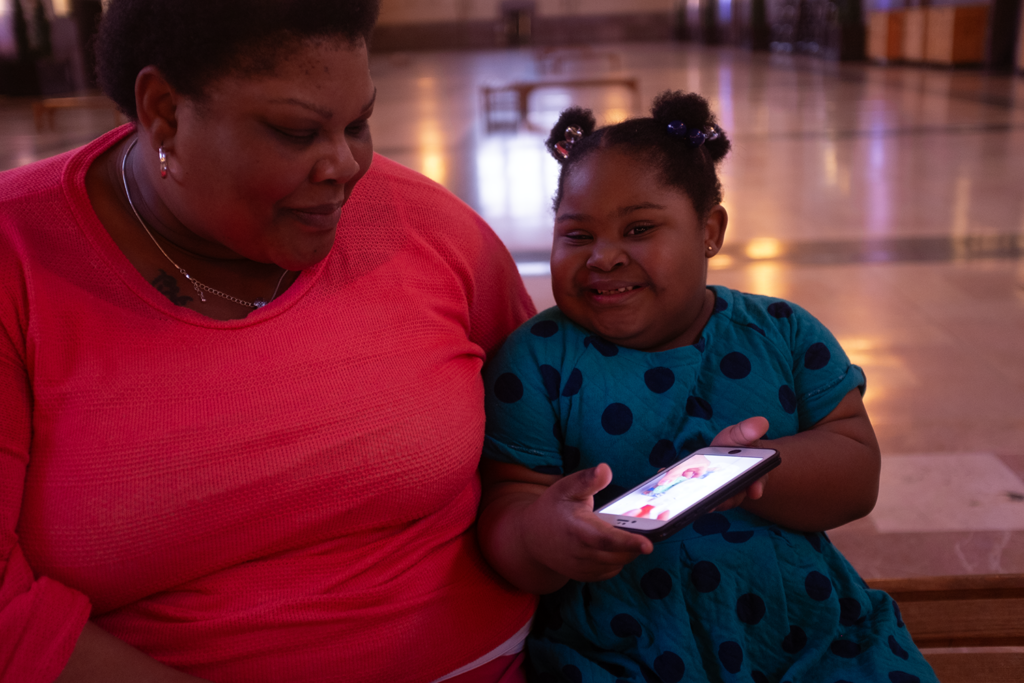
Training module for advocacy organizations about supporting Black and Hispanic new and expectant parents of children with disabilities
This course is designed to share recommendations and strategies for medical providers to better support Black and Hispanic new and expectant parents by sharing the research findings they care the most about.
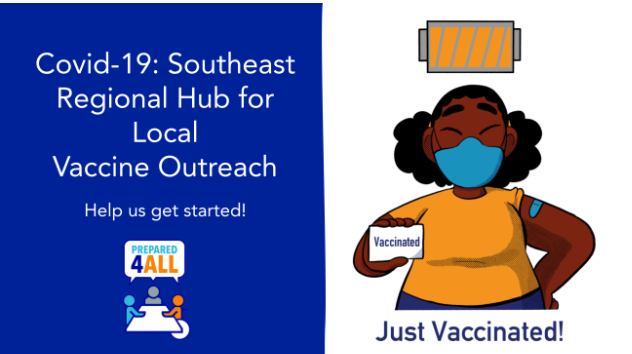
"This course is for individuals interested in participating in the COVID-19 Vaccine Information and Dissemination SuperHub project as a Local Trusted Champion. The course provides an overview of the project, roles & responsibilities, resources, and other helpful information. Certificate awarded upon completion."
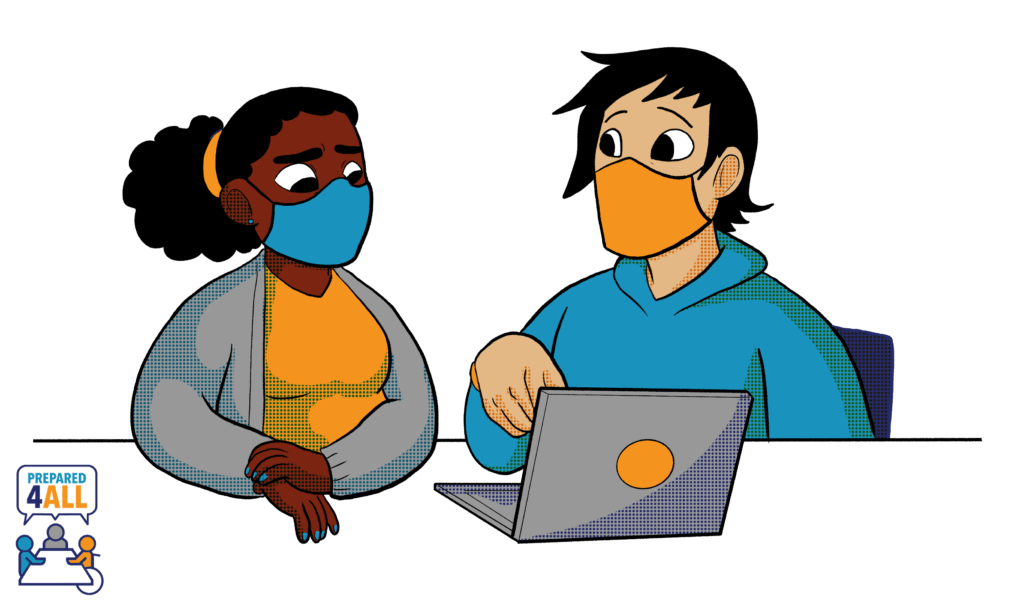
Motivational interviewing, or MI, is a communication style proven to be effective in helping people adopt successful health behavior changes, including getting vaccinated. Supporting friends, family, and community members to get the COVID-19 vaccine can be difficult and can sometimes cause conflict This six-lesson course will introduce the foundations of MI, provide examples of how you can use MI to support people to get the COVID-19 vaccine and offer additional resources for future learning.

Training module for medical providers about supporting Black and Hispanic new and expectant parents of children with disabilities
This course is designed to share recommendations and strategies for advocacy organizations to better support Black and Hispanic new and expectant parents by sharing the research findings they care the most about.
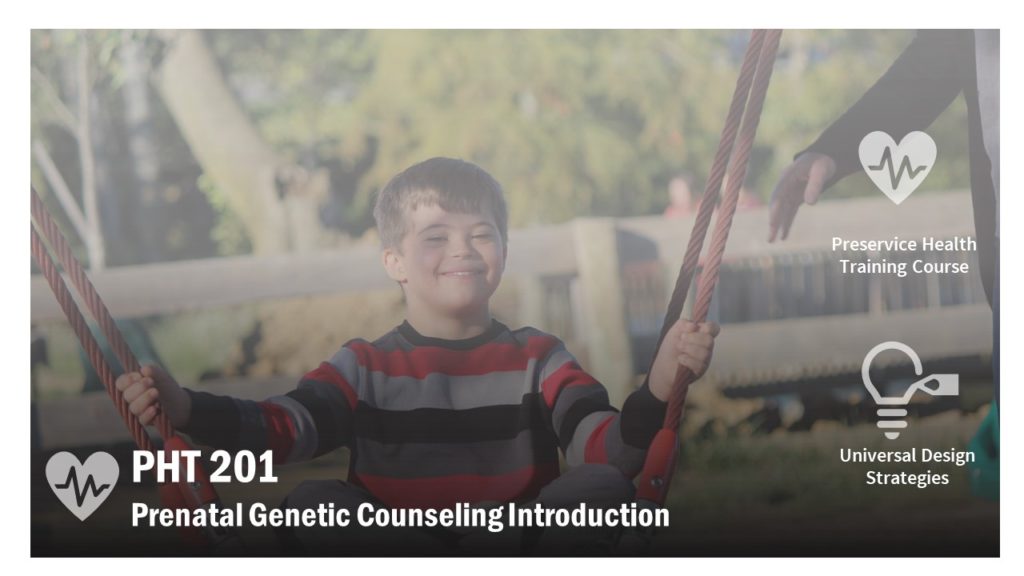
⚕️ Target Audience: Medical and genetics professionals and students
This course is for medical and genetics professionals and students to better understand the outcomes for people with Down syndrome and other genetic conditions as impacted by improved access to supports and services over the past 50 years.
Hours: 1.5
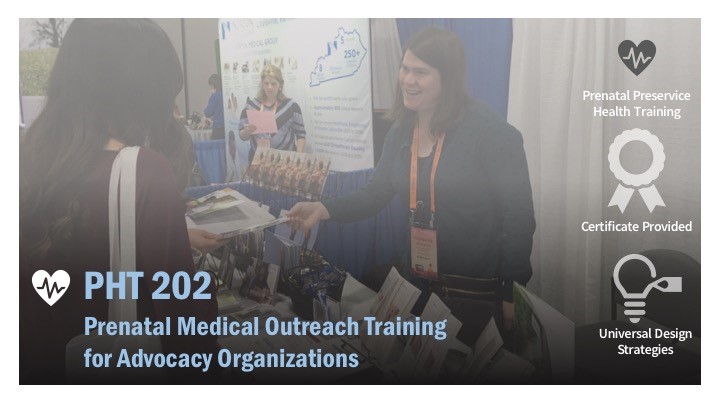
⚕️ Target Audience: advocacy organization leaders and medical outreach supervisors
This course is designed to train medical outreach supervisors/staff at advocacy organizations about how to build solid, professional prenatal medical outreach programs.
Hours: 2.5

⚕️ Target Audience: Volunteers and staff at local advocacy organizations who want to undergo training to become Prenatal Outreach Representatives.
This course is designed to train Prenatal Outreach Representatives about how to build ongoing and professional relationships with local medical providers as part of a medical outreach program at a local advocacy organization.
Hours: 2.5
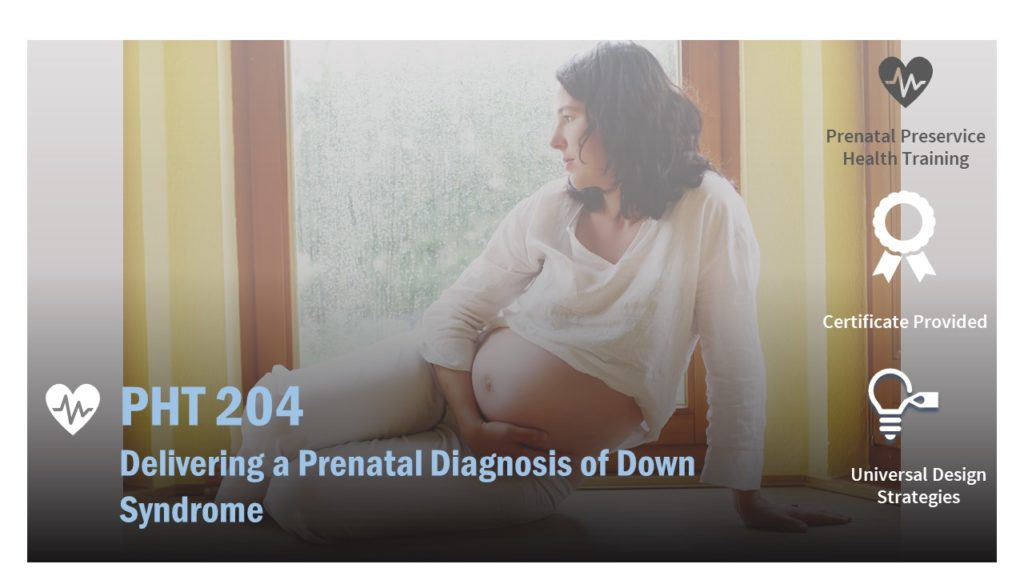
⚕️ Target Audience: Medical Professionals. This course employs Brighter Tomorrows, an interactive resource to educate clinicians on how to give a prenatal diagnosis of Down syndrome, using two simulated sessions with a high-risk patient and her husband.
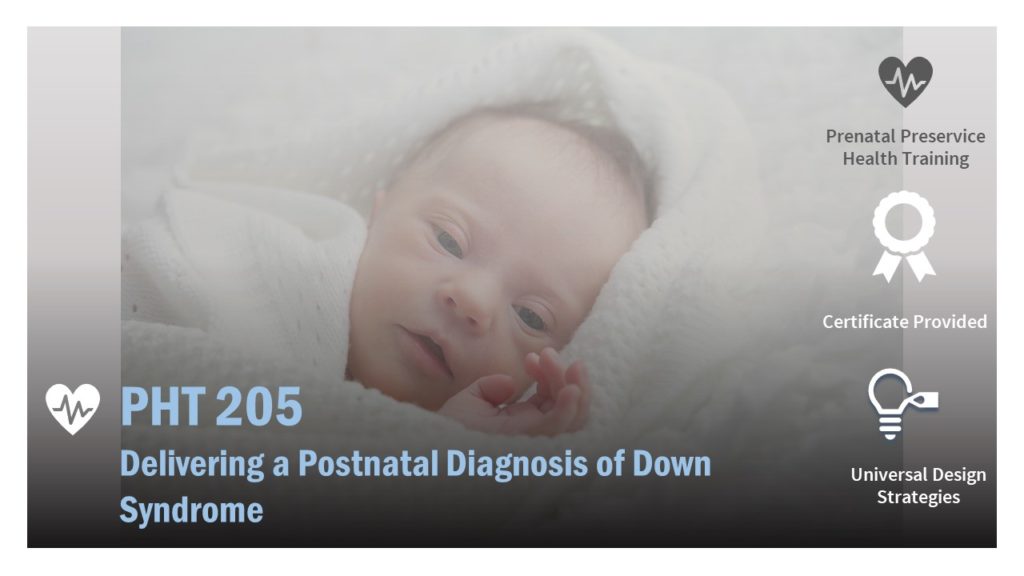
⚕️ Target Audience: Medical Professionals and Medical Students. This course employs an interactive resource to educate clinicians on how to give a postnatal diagnosis of Down syndrome, using two simulated sessions with a patient and her husband.
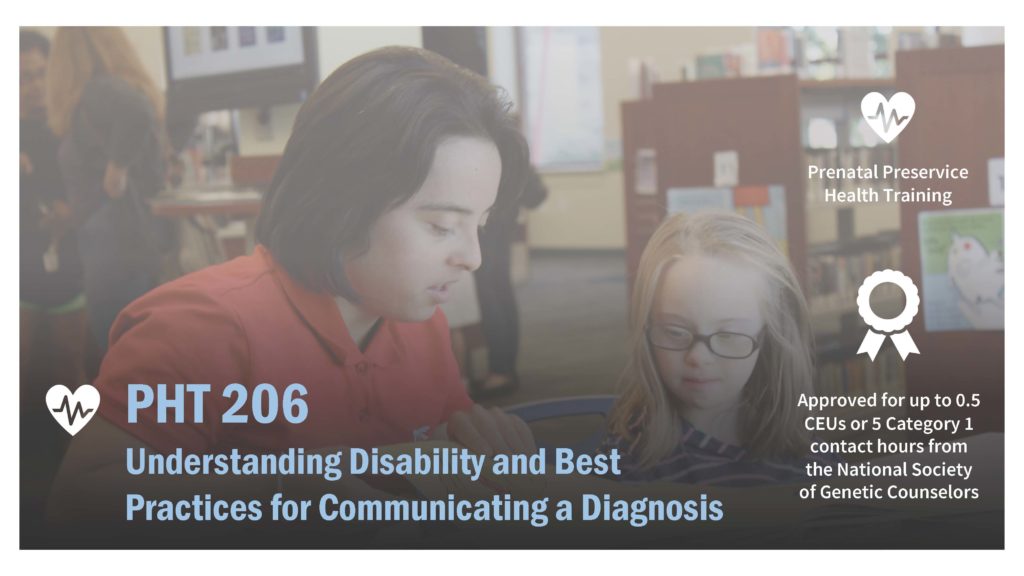
The overarching purpose is to give genetic counselors tools to assess the administration of genetic screening and testing in the context of the disability rights movement, to recognize what constitutes balanced information, and to promote culturally competent practice as well as client-centered, informed, non- coercive and value-based decision-making.
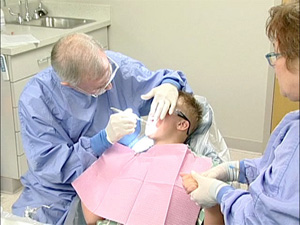
In designing the individual case modules included in this program, our goal has been to teach several core objectives regarding treating persons with developmental disabilities in a health care environment. While in many ways these are similar to the objectives that are taught student dentists for the treatment of any patient, we believe that they bear specific relevance to the needs of persons with disabilities.
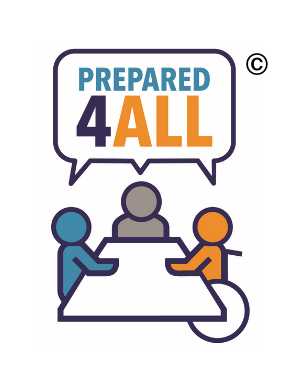
This course is designed to increase your knowledge about whole community emergency planning, including COVID-19 planning, as well as provide you the basic information needed to connect with your own local emergency planners, public health professionals, and community. You can submit the certificate of completion to your CEU board. The Prepared4ALL course series and the HDI Learning Center have not renewed CEU options after 2021.
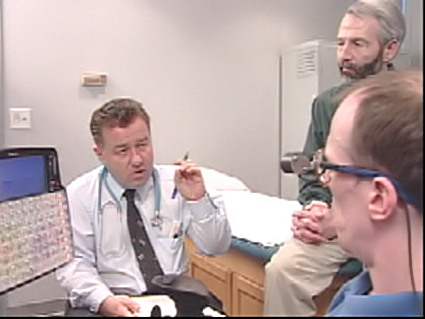
The Introductory Preservice Health Training modules are designed to provide an overview of treating individuals with developmental disabilities. The Bryan Case features an individual with cerebral palsy (CP) whose presenting issues are confounded with communication difficulties and conditions that frequently co-occur in patients with CP. Related medical issues are briefly described to alert the medical provider to possible needs for additional information. The tutorials use multi-media, virtual patient instruction.
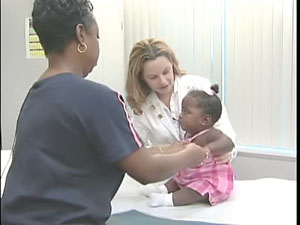
The Preservice Health Training (PHT) Modules were designed to improve students' and practicing clinicians' comfort level and knowledge for working with patients who have developmental disabilities. The modules were produced in response to the continuing disparity in access to quality healthcare experienced by this patient population. The patient is played by a child who was born prematurely, and the mother is played by her real mom.
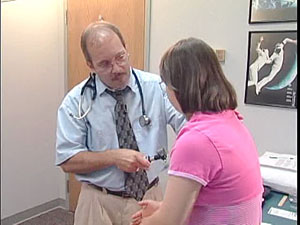
The Preservice Health Training (PHT) Modules were designed to improve students' and practicing clinicians' comfort level and knowledge for working with patients who have developmental disabilities. The modules were produced in response to the continuing disparity in access to quality healthcare experienced by this patient population. In this case the patient, Julia, is being seen for a well-child visit. The actor playing Julia is an individual with Down syndrome.
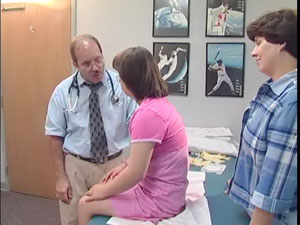
The Preservice Health Training (PHT) Modules were designed to improve students' and practicing clinicians' comfort level and knowledge for working with patients who have developmental disabilities. The modules were produced in response to the continuing disparity in access to quality healthcare experienced by this patient population. In this case the patient, Julia, is being seen for a well-child visit. The actor playing Julia is an individual with Down syndrome.
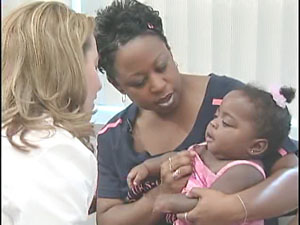
The Preservice Health Training (PHT) Modules were designed to improve students' and practicing clinicians' comfort level and knowledge for working with patients who have developmental disabilities. The modules were produced in response to the continuing disparity in access to quality healthcare experienced by this patient population.
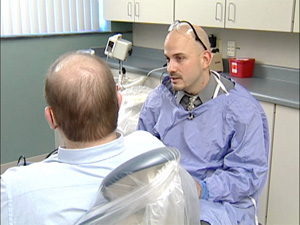
In designing the individual case modules included in this program, our goal has been to teach several core objectives regarding treating persons with developmental disabilities in a health care environment. While in many ways these are similar to the objectives that are taught student dentists for the treatment of any patient, we believe that they bear specific relevance to the needs of persons with disabilities.

The Preservice Health Training (PHT) modules were designed to educate student and practicing primary care providers about working with individuals having developmental disabilities. As you work through each case, you make decisions about how to conduct the examination, as well as answer specific questions related to developing a treatment plan.
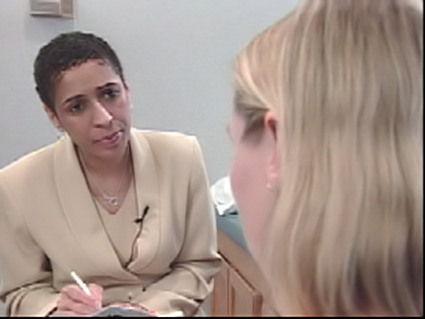
The Introductory Preservice Health Training modules are designed to provide an overview of treating individuals with developmental disabilities. The Jay case presents a child with autism. In this case, communication challenges are paramount. Behaviors that co-occur for some children with autism are both modeled and described. The tutorials use multi-media, virtual patient instruction.
